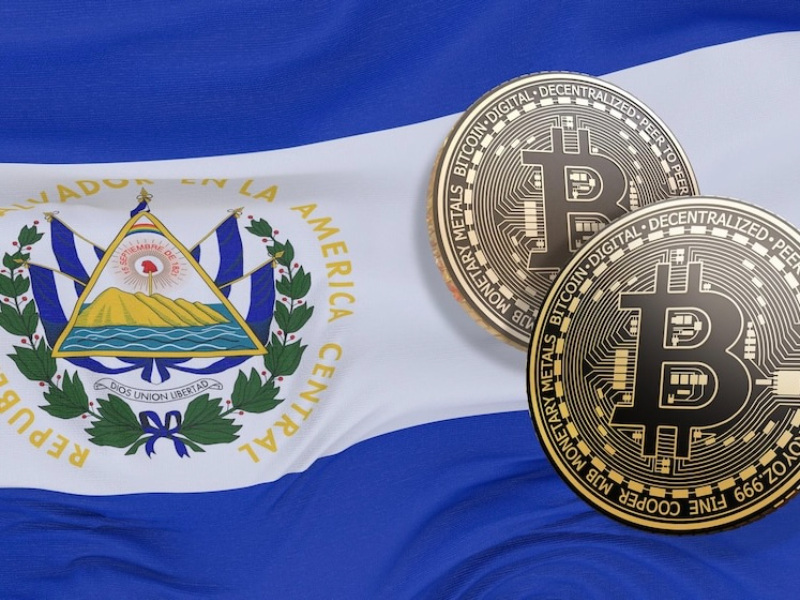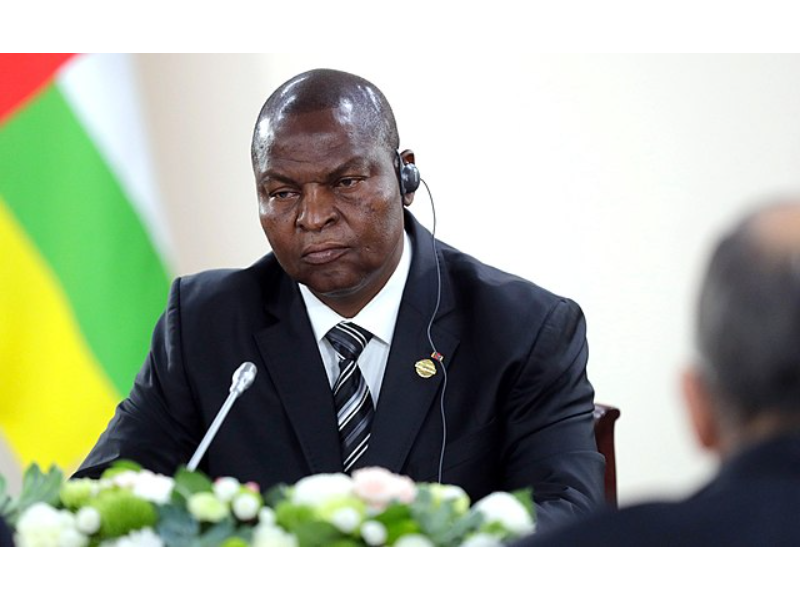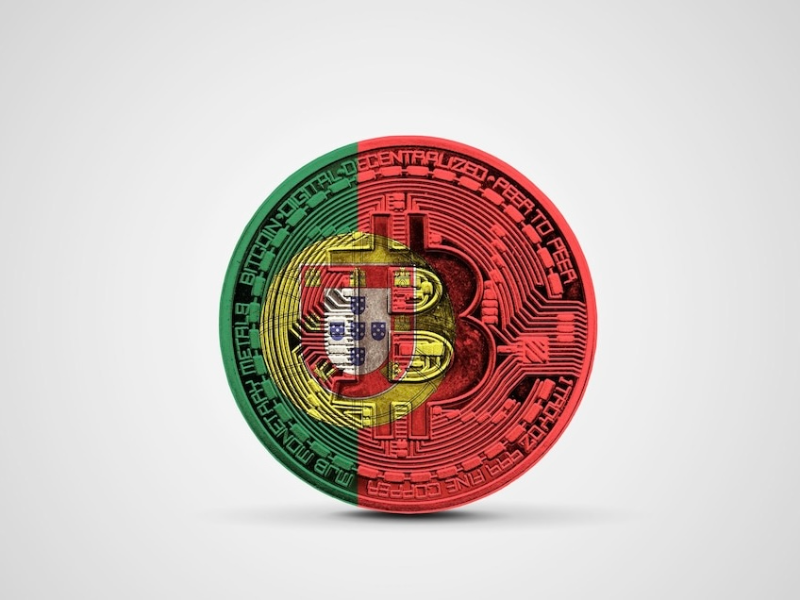- El Salvador and the Central African Republic (CAR) have pioneered bitcoin adoption as legal tender, aiming to boost financial inclusion and economic growth.
- Próspera, a special economic zone in Honduras, has recognised bitcoin as a unit of account, enhancing financial flexibility and transparency for businesses and individuals.
- Portugal and Singapore are leading hubs for blockchain innovation, with supportive regulatory frameworks and significant government investments promoting widespread cryptocurrency use.
Over the past decade, bitcoin and cryptocurrencies have captivated global attention, sparking widespread discussion and debate. The advent of blockchain technology has revolutionised the traditional financial sector, introducing a paradigm shift towards decentralisation.
Cryptocurrencies, with their promise of security, transparency, and autonomy, are not just a passing trend; they are heralded as the future of finance, poised to redefine how people perceive and handle money in an increasingly digital world.
As this momentum builds, the impact of cryptocurrencies extends beyond individual investors and tech enthusiasts. Entire nations are beginning to recognise the transformative potential of bitcoin and other digital currencies for their economies.
Join us as we examine the transformative impact of bitcoin on national economies and its growing role in the global financial landscape.
1. El Salvador

El Salvador made history by becoming the first country to recognise bitcoin as legal currency, establishing itself as a global leader in blockchain technology. In June 2021, the Salvadoran government enacted a landmark law making bitcoin a valid means of payment for goods and services alongside the U.S. dollar, the nation’s legal tender.
The pioneering decision was driven by the need to improve financial inclusion, as 70% of El Salvador’s adult population lacks bank accounts. By adopting bitcoin, the government aimed to make financial services more accessible, reduce remittance costs, and stimulate economic growth.
Nayib Bukele, the president of El Salvador, has emphasised that El Salvador’s acceptance of bitcoin might make the country an appealing location for foreign investment. The government launched a number of programs to encourage the broad use of bitcoin. One significant initiative was the establishment of a $150 million trust fund by the state development bank, Banco de Desarrollo de El Salvador, approved by the legislature’s financial panel in August 2021. This fund was created to allow for the automated conversion of bitcoin to U.S. dollars, facilitating cross-border currency trading for Salvadorans.
In September 2021, El Salvador introduced its Chivo wallet, which translates to “cool” in local vernacular, as a key step in its bitcoin adoption strategy. To encourage residents to start using bitcoin, the government placed $30 into each Chivo wallet. Additionally, to facilitate remittances, the government established a network of cryptocurrency ATMs across El Salvador and in 50 U.S. cities.
In 2022, the global cryptocurrency market experienced a significant collapse, which drastically decreased the value of bitcoin. This raised concerns about the financial impact on El Salvador due to its substantial investment in the cryptocurrency. However, President Bukele showed no signs of fear. Instead, he reaffirmed his commitment to bitcoin by pledging to buy one unit every day through a dollar-cost averaging method. This move was intended to demonstrate his steadfast and ongoing support for the digital currency, reaffirming the government’s long-term belief in bitcoin’s potential.
In January 2023, El Salvador enacted the Digital Asset Issuance Law, setting the framework for the issuance of “Volcano Bonds,” unique financial instruments backed by bitcoin and named after the country’s volcanoes. This law outlines the regulatory parameters for these bonds, aiming to attract international investment and further integrate bitcoin into the country’s economic strategy.
After adopting bitcoin, more Salvadorians had more bitcoin wallets than bank accounts by 2022. In 2023, President Bukele attributed this shift to a remarkable 95% increase in tourism to El Salvador.
As El Salvador navigates the challenges and opportunities of this pioneering move, it has the potential to set a precedent for other nations. The success of El Salvador’s experiment with bitcoin could inspire similar initiatives worldwide, potentially reshaping the future of global finance.
Also read: Bitcoin price forecast: 5 experts look to 2024 and beyond

2. The Central African Republic
Mathematics is the language of the Universe. Bitcoin is universal money.
Faustin-Archange Touadéra, president of The Central African Republic
In the spring of 2022, the Central African Republic (CAR) became the first African nation and the second country globally to adopt bitcoin as legal tender, drawing inspiration from El Salvador’s example. This means that bitcoin must be accepted as payment for public or private debts and to meet financial obligations, including tax payments, contracts, and legal fines or damages.
The CAR, though rich in natural resources, faces a host of challenges. The nation grapples with economic mismanagement, minimal private and foreign investment, and pervasive governmental issues. Despite these obstacles, the CAR is optimistic that adopting bitcoin will catalyse similar successes to those witnessed in El Salvador, hoping to boost its economy and attract international attention.
This decision was met with praise from bitcoin advocates worldwide and was strongly supported by CAR President Faustin-Archange Touadéra, a known proponent of bitcoin. Similar to El Salvador’s President Nayib Bukele, Touadéra’s enthusiastic support for bitcoin resonated through his social media presence.
On April 28, 2022, he posted on his X account: “Mathematics is the language of the Universe. Bitcoin is universal money.”
However, the initial excitement from the bitcoin community was short-lived as the CAR introduced its own cryptocurrency project, the Sango Coin, shortly after the bitcoin law came into effect. This move was unexpected and aimed at creating a “crypto hub” in the capital, Bangui, to benefit the population of 5 million. Despite the bitcoin-only proponents’ efforts to support bitcoin adoption in the CAR, the country opted to develop Sango Coin to attract foreign investment and provide incentives such as citizenship by investment and governance advantages.
The introduction of Sango Coin was driven by the CAR’s dire financial situation, characterised by economic mismanagement and a high level of external debt. The government hoped that Sango Coin would provide a quick and alternative source of funding, facilitating foreign direct investment to jumpstart essential development projects.
But the use of bitcoin was limited to a single year. The Central African Republic’s parliament overturned the law that had made bitcoin and other cryptocurrencies legal money on March 27, 2023.
Bitcoin’s failure in the Central African Republic (CAR) can be attributed to several key factors. The country’s severe economic challenges, including widespread poverty, political instability, and inadequate infrastructure, created a difficult environment for adopting new technologies. Limited internet access, with only about 10% of the population online, and the lack of basic amenities like electricity, further hindered the use of digital currency.
While bitcoin and other digital currencies offer an alternative to traditional banking systems, they still rely on essential infrastructure such as reliable internet access, electricity, and digital literacy among the population. In countries where these basic amenities are lacking, the potential benefits of bitcoin are significantly limited.

Also read: 7 things you need to know about the bitcoin halving
3. Próspera, Roatan, Honduras
At @ProsperaZEDE, we believe in the right to financial freedom and monetary freedom. People should be free to carry out transactions, do their accounting, and report taxes in the currency of their choice.
Jorge Colindres, acting manager and tax commissioner of Próspera ZEDE
Próspera, a special economic zone in Roatan, Honduras, has officially recognised bitcoin as a unit of account in September 2021, permitting its use to measure the market value of goods and services.
Jorge Colindres, the acting manager and tax commissioner of Próspera ZEDE (Zone for Employment and Economic Development), spearheaded this initiative. He explained that the decision was intended to provide greater financial freedom and flexibility to individuals and businesses operating within the zone.
Colindres stated on X: “At @ProsperaZEDE, we believe in the right to financial freedom and monetary freedom. People should be free to carry out transactions, do their accounting, and report taxes in the currency of their choice.”
Due to this development, people and companies in Próspera now have a practical alternative to the US dollar and the Honduran lempira for valuing products and services: Bitcoin. The widespread adoption of bitcoin is expected to enhance financial flexibility and promote more efficient and transparent transactions.
To use bitcoin as a unit of account, businesses and individuals must notify Próspera’s tax commission within 30 days of the relevant tax period. This notification must reference an approved cryptocurrency exchange, such as Coinbase or Kraken.
However, Colindres noted that due to technological and regulatory issues, Próspera cannot currently implement the “Final BTC Tax Payment Procedure.” As a result, entities opting for bitcoin will calculate tax liabilities in bitcoin for internal use but report them to Próspera ZEDE in US dollars or Honduran lempira.
Pop quiz
Which country first used bitcoin as a legal tender?
A. El Salvador
B. The Central African Republic
C. Portugal
D. Singapore
The correct answer is at the bottom of the article.
Currently, El Salvador is the only country where bitcoin is recognised as legal tender. Additionally, the region of Próspera has embraced bitcoin for certain applications, such as valuing goods and services. There is, however, widespread speculation that many more nations may soon follow suit.
4. Portugal

Portugal has purposefully created a welcoming atmosphere for newcomers to the blockchain and cryptocurrency space. The country has been aggressively integrating blockchain technology into several industries, including supply chain management, healthcare, and public services.
In an effort to promote communication and collaboration between blockchain sector players, the Portuguese government unveiled the Blockchain Panorama platform in 2019. This project exemplifies Portugal’s goal to lead the way in blockchain innovation and adoption.
Since then, the area has seen a surge in the number of bitcoin lovers and proponents, attracted by its pro-crypto atmosphere that permits actual bitcoin usage, such as paying taxes and bills. The uptake of merchants has also increased, and BitBase, a Spanish firm, is striving to set up more bitcoin ATMs and shops in important cities.
The Portuguese government issued a decree in 2021 that laid the groundwork for the establishment of Technological Free Zones (ZLTs). Portugal’s status as a player for cryptocurrency and blockchain innovation is further cemented by this program, which promotes the application of blockchain technology through testing and experimentation.
5. Singapore

Singapore is leading the way in the use of blockchain technology, with large government expenditures on blockchain.
Singapore has been a popular destination for initial coin offerings (ICOs) due to its favorable legal framework, which has drawn several blockchain companies to establish their headquarters there.
The nation’s financial regulatory authority, the Monetary Authority of Singapore (MAS), is in charge of creating infrastructure, technical standards, and governance frameworks to encourage the use of cryptocurrencies and blockchain technology.
In 2021, Independent Reserve, a cryptocurrency exchange, polled Singaporeans across all demographic categories and found that 43% of them were cryptocurrency owners. A follow-up study conducted by the same business in 2022 revealed a notable rise in people’s interest in, faith in, and confidence in the future of blockchain technology and cryptocurrencies.
According to the study, 58% of participants saw bitcoin as a store of wealth and an investment instrument, demonstrating a significant conviction in the long-term potential of virtual currencies.
According to surveys, Singaporeans are becoming more accepting of digital currencies, which further cements the country’s position as a pioneer. Singapore has demonstrated its dedication to innovation and financial progress through its proactive approach to government policy and its citizens’ faith in digital currencies.
The correct answer is A, El Salvador.
